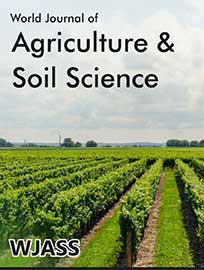 Research Article
Research Article
Women Farmers’ Perceived Reasons for Use of Indigenous Knowledge in Crop Pests and Animal Diseases/Disorder Management in Imo State Nigeria
Anyoha NO, Aja OO and Nwozuzu SO*
Department of Agricultural Extension, School of Agriculture & Agricultural Technology, Federal University of Technology, Owerri, Imo State, Nigeria
Nwozuzu SO, Department of Agricultural Extension, School of Agriculture & Agricultural Technology, Federal University of Technology, Owerri, Imo State, Nigeria.
Received Date: February 04, 2021; Published Date: January 19, 2021
Abstract
This study examined the reasons women farmers in Imo State have, for employing indigenous knowledge practices in management of crop pests and animal diseases. A total of 360 women farmers were randomly selected from the 3 agricultural zones of the State. Questionnaire and oral interview were used to elicit information from the respondents. Percentages, mean and standard deviation were used to analyze data obtained from the field. Results showed that the women farmers grow crops like cassava, maize, yam, vegetables among others. They rear goats, sheep, poultry birds and pigs. The crop pests in the area include rats, rabbits, squirrel, and weevils etc. While the animal diseases include coccidiosis, worms, fever, diarrhea, foot rot, new castle among others. Indigenous knowledge practices employed in treating crop pests and animal diseases include the use of bitter leaf solution to de-worm animals (M=2.50), early weeding (M=3.0), handpicking of insects (M=3.43) among other practices. The reasons for use of these practices include easily accessible and understood (M=3.01), no pollution to environment (M=30.4), fast growth of crops/animals (M=3.61) among many others. We recommend that indigenous knowledge practices be promoted and recommended to all framers who wish to adopt them.
Keywords: Indigenous knowledge; Crop pests; Animal; Diseases; Women; Farmers
-
Anyoha NO, Aja OO, Nwozuzu SO. Women Farmers’ Perceived Reasons for Use of Indigenous Knowledge in Crop Pests and Animal Diseases/Disorder Management in Imo State Nigeria. World J Agri & Soil Sci. 6(3): 2021. WJASS.MS.ID.000638.
-

This work is licensed under a Creative Commons Attribution-NonCommercial 4.0 International License.






